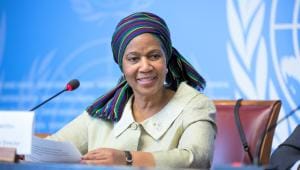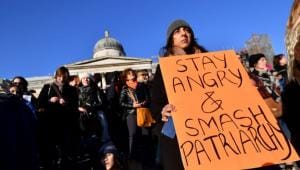Investing in a feminist peace
During the Covid-19 pandemic, public life in much of the world has largely ground to a halt. For the two billion people living in conflict-affected countries, however, there has been no lull in violence and upheaval.
24 November 2020, 18:00 PM
End rape—an intolerable cost to society
If I could have one wish granted, it might well be a total end to rape. That means a significant weapon of war gone from the arsenal of conflict, the absence of a daily risk assessment for girls and women in public and private spaces, the removal of a violent assertion of power, and a far-reaching shift for our society.
24 November 2019, 18:00 PM
Homes for equality in a changing world
What’s a family? Classically, we think of a mother, a father and the children. The father goes out to work, the mother takes care of the children, maybe she works part time, at home or close to home so she can be there when the children get back from school. It’s a common formula in advertising, movies and the media. It’s the pattern of romance plots, the story of song lyrics, the image for illustrations in schoolbooks. It’s comforting, stable, predictable. And it’s wrong, for the majority of families in the world.
25 June 2019, 18:00 PM
Good men should not be quiet spectators
As the crowd builds of those telling their story, we see a picture of real life begin to emerge. A critical mass is growing that proves how much goes wrong when people can act with impunity in a culture of silence.
20 October 2017, 18:00 PM
No hidden figures: Success stories can help girls' STEM careers
What makes a young girl believe she is less intelligent and capable than a boy? And what happens when those children face the "hard" subjects like science, technology, engineering and mathematics (STEM)?
10 February 2017, 18:00 PM
Why gender equality is the most critical of all the global goals
At the end of this month, thousands of representatives from all over the world will gather in New York. They will witness the launch of the most ambitious universal effort since the United Nations Declaration of Human Rights in 1948.
22 September 2015, 18:00 PM
Transforming Economies, Realising Rights
Ultimately, upholding women's rights will not only make economies work for women, it will also benefit societies as a whole by creating a fairer and more sustainable future.
29 April 2015, 18:00 PM














